After Charles Boycott tried to evict a number of his tenant farmers in 1880, locals in County Mayo, Ireland, fought back by ostracizing him — leading to the term "boycott."
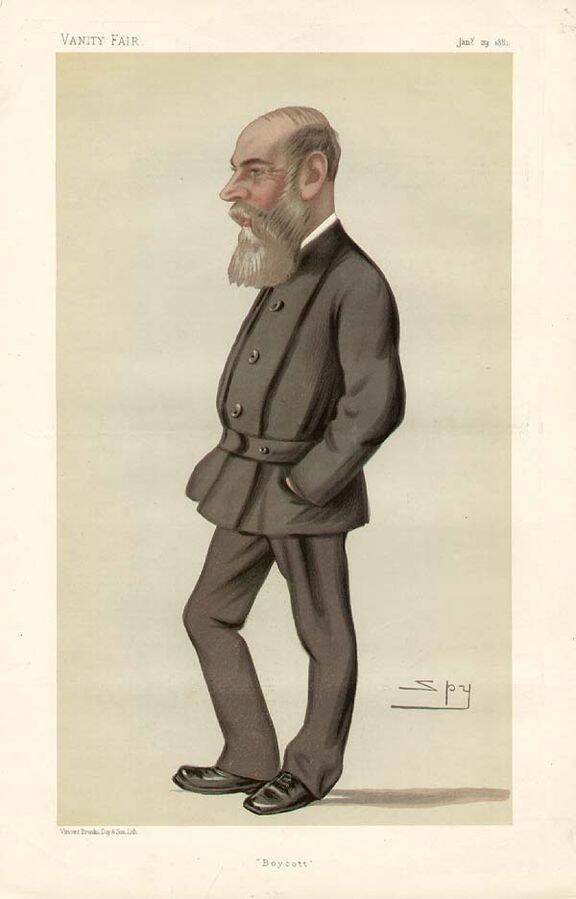
Wikimedia CommonsA caricature of Charles Boycott from 1881.
Boycotts are fairly common today. Usually done to make a political point or support a cause, boycotts involve refusing to buy a product or frequenting a business. So where does the word “boycott” come from? The answer lies with a hated English land agent named Charles Boycott.
In 19th-century Ireland, Boycott was at the center of a dispute between landlords and tenants. As he tried to evict a number of people in County Mayo, locals resisted him through ostracization. None of them would work on his farm and they encouraged others to refuse him goods and services.
Let’s take a look at the infamous life of Charles Boycott, the man behind the origin of the word boycott.
Who Was Charles Cunningham Boycott?
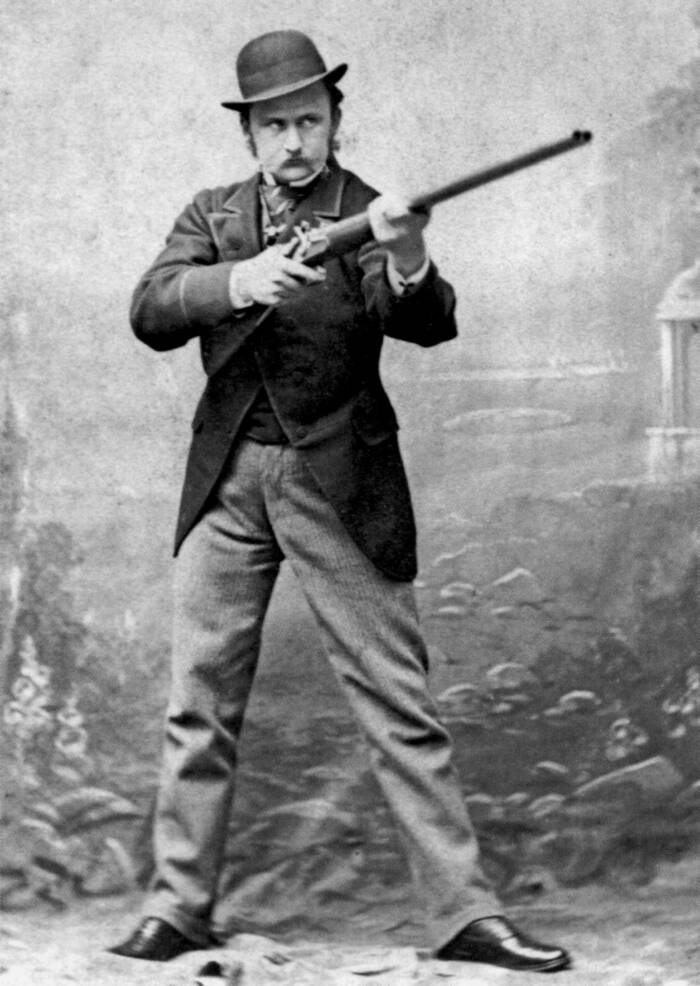
Pictorial Press LtdCharles Cunningham Boycott posing with a gun in the 1860s.
Charles Cunningham Boycott was born on March 12, 1832 in Norfolk, England. Before he became a land agent in Ireland, he had an unremarkable career in the British military.
Boycott retired from the military after three years, and moved to Achill Island in County Mayo, Ireland, with his wife, who was Irish. There, he lived and farmed for 17 years. But Boycott aspired to work on a better farm on the mainland and finally got his chance to do so in the 1870s.
Then, History Ireland reports that Boycott was offered a job by John Crichton, 3rd Earl of Erne, to be a land agent for a slice of the Earl’s 40,386 acres in Ireland. Specifically, the Earl suggested that Boycott oversee his 629-acre farm of near the village of Neale
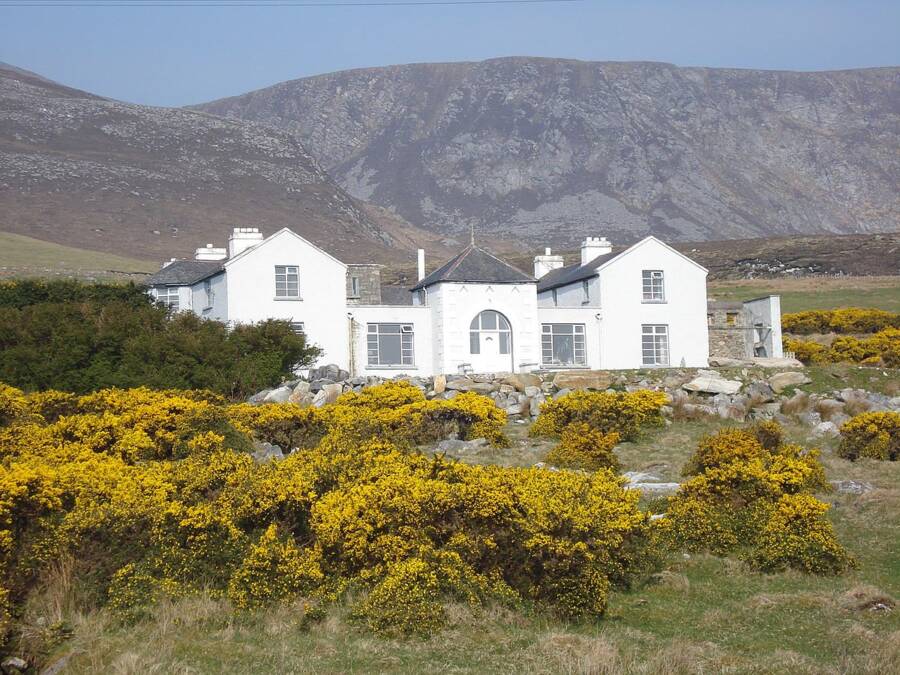
Wikimedia CommonsBoycott’s house on Achill Island today.
Boycott agreed, and moved with his wife to the Earl’s Lough Mask house in 1874. There, he would oversee the Earl’s farm and collect rent from roughly 120 tenant farmers.
English land agents in Ireland weren’t popular with their tenants — landlords controlled some 80 percent of land in Ireland at the time — but Boycott was especially disliked. Not only did he live in comfort on his estate and evict tenants who could not pay rent, but he was also harsh toward the tenants he managed. Boycott reportedly charged them for broken equipment, and oversaw a number of “bloody” evictions, according to Irish Central.
Then, after several years of bad harvests in County Mayo, the mood toward Charles Boycott darkened even more.
The Origin Of The Word Boycott
By the fall of 1880, the political atmosphere in Ireland had changed. Charles Stuart Parnell, the president of the Irish Land League, had begun to urge tenant farmers to stand up against land agents using non-violent resistance.
On Sept. 19, Parnell spoke in Ennis, Ireland, and instructed the crowd to “shun” land agents who tried to enforce unfair evictions.
“When a man takes a farm from which another has been evicted, you must shun him on the roadside when you meet him – you must shun him in the streets of the town – you must shun him in the shop – you must shun him on the fair green and in the market place, and even in the place of worship,” Parnell exclaimed. “[B]y leaving him alone, by putting him in moral Coventry, by isolating him from the rest of the country, as if he were the leper of old – you must show him your detestation of the crime he committed.”
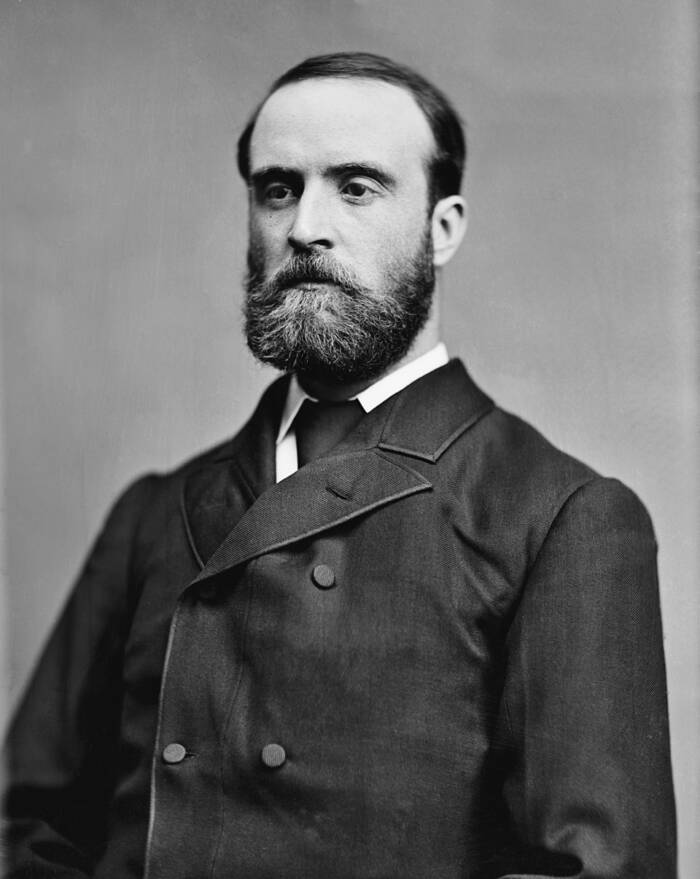
Wikimedia CommonsThe first boycott helped to make Parnell more popular.
Just a few days later, on Sept. 22, Charles Boycott — unsympathetic to the years of bad harvest his tenants had suffered — sent out 11 eviction notices. But this time locals in County Mayo fought back.
When a process server, escorted by 17 policemen, tried to serve the eviction notices, he was pelted with stones, mud, and manure. The next day, 100 locals converged on Boycott’s estate and instructed his employees to stop working for him. Not only did Boycott’s household staff and farmers agree to abandon him, but even local shops refused to serve him.
The world’s first “boycott” had begun.
“[T]he people collected in crowds upon my farm, and some hundred or so came up to my house and ordered off, under threats of ulterior consequences, all my farm laborers, workmen, and stablemen, commanding them never to work for me again,” Boycott wrote in a furious letter to The London Times, which only deepened the local animosity toward him.
He continued: “The shopkeepers have been warned to stop all supplies to my house, and I have just received a message from the postmistress to say that the telegraph messenger was stopped and threatened on the road when bringing out a message to me… The locks on my gates are smashed, the gates thrown open, the walls thrown down, and the stock driven out on the roads. I can get no workmen to do anything.”
Supporters of Boycott sent volunteers to help with his harvest — accompanied by hundreds of British troops. But Charles Boycott had been so ostracized in County Mayo that he couldn’t stay there for long.
The Final Days Of Charles Boycott
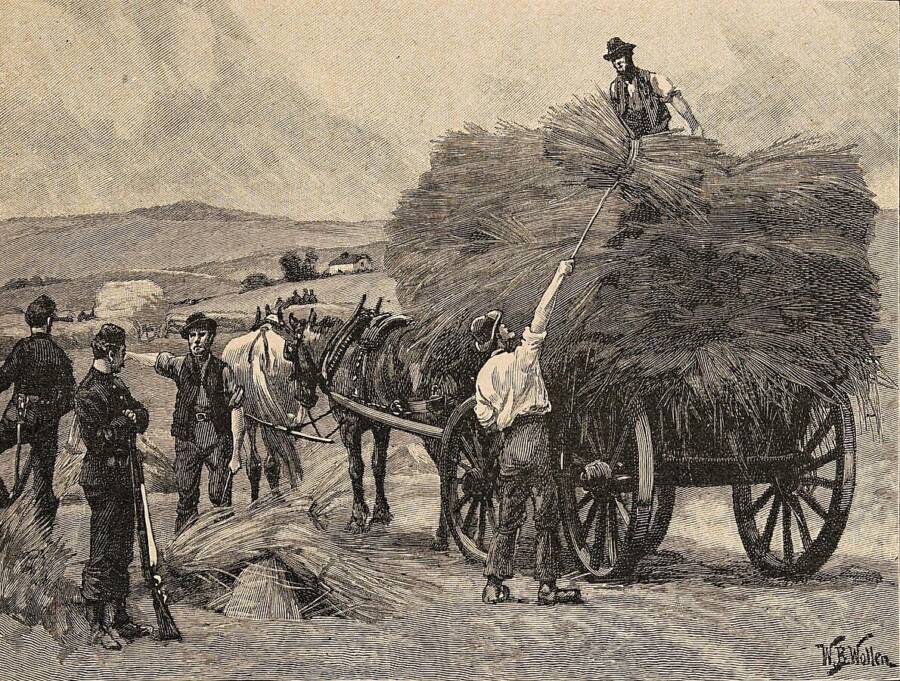
Wikimedia CommonsAn illustration of the volunteers who came to help harvest the crops on Boycott’s land.
After the harvest, Boycott and his family fled to Dublin. But the hotel where they were staying received threatening letters and so, on December 1, the Boycotts moved to England.
Meanwhile, the term “boycott” began to be used by newspapers to signify the ostracization of a person or business. And Charles Boycott became a known figure around the world.
When he went to the United States, Boycott traveled under the name “Cunningham.” But he fooled no one, and papers reported on his arrival. The New York Tribune wrote, “The arrival of Captain Boycott, who has involuntarily added a new word to the language, is an event of something like international interest.” And The New York Times wrote: “‘Capt.’ Charles Cunningham Boycott, whose name has acquired wide notoriety in connection with the land-rent troubles in Ireland, arrived in the City yesterday.”
Despite how he left County Mayo in 1880, Charles Boycott did continue to visit Ireland throughout his life — though he never moved back. He died on June 19, 1897 at the age of 65, and, though the details of his life may be forgotten, his name never will be.
Today, boycotts are one of the most common acts of nonviolent resistance. And it’s thanks to Charles Boycott — and the Irish locals who stood up against him — that we associate his name with the term.
After reading about Charles Boycott, the eponym for the word boycott, go inside the fascinating story of the Great Railroad Strike of 1877, which some compared to a “Second American Revolution.” Or, discover the stories of important civil rights leaders whose stories you never learned in school.





